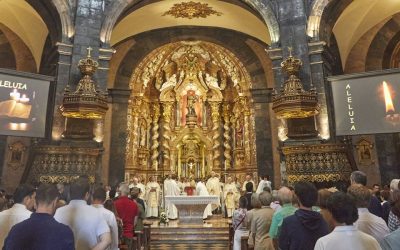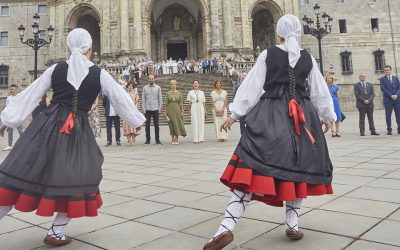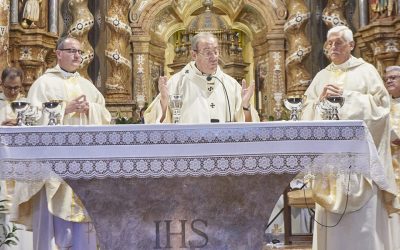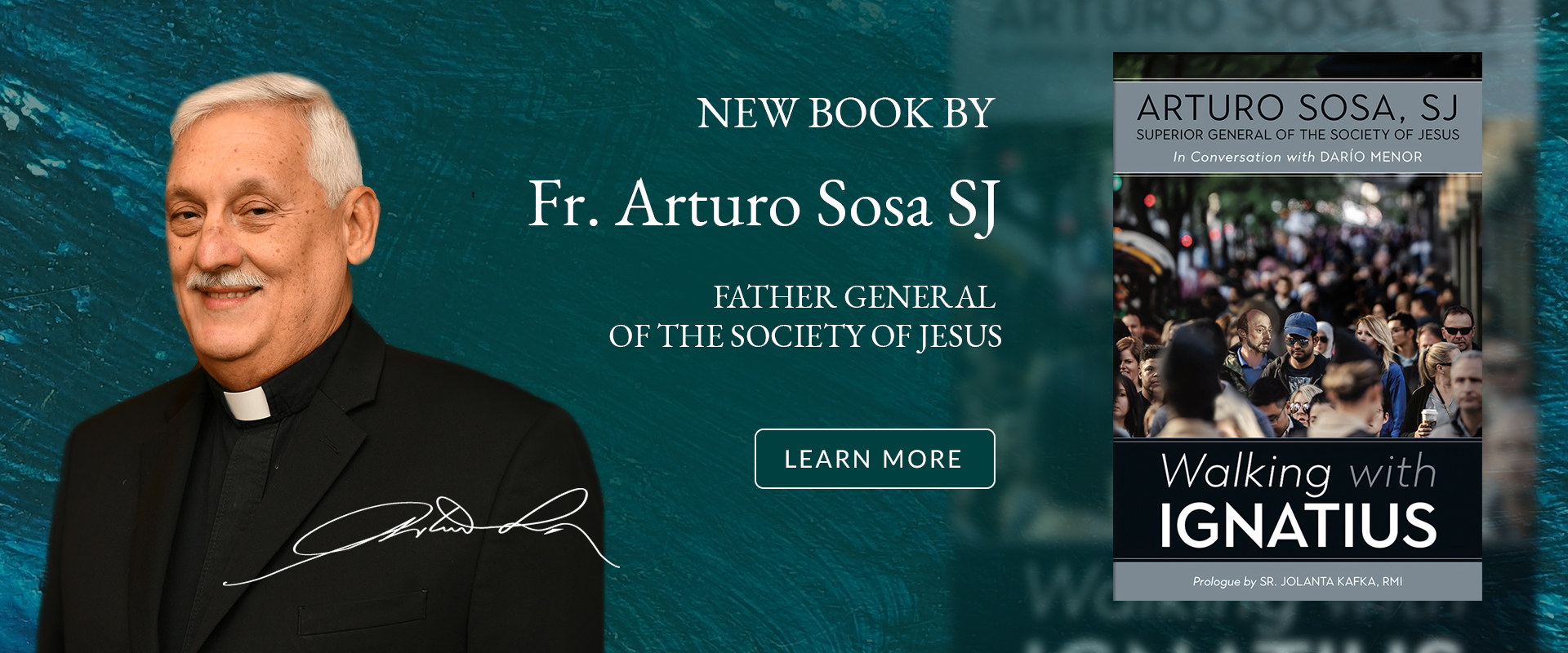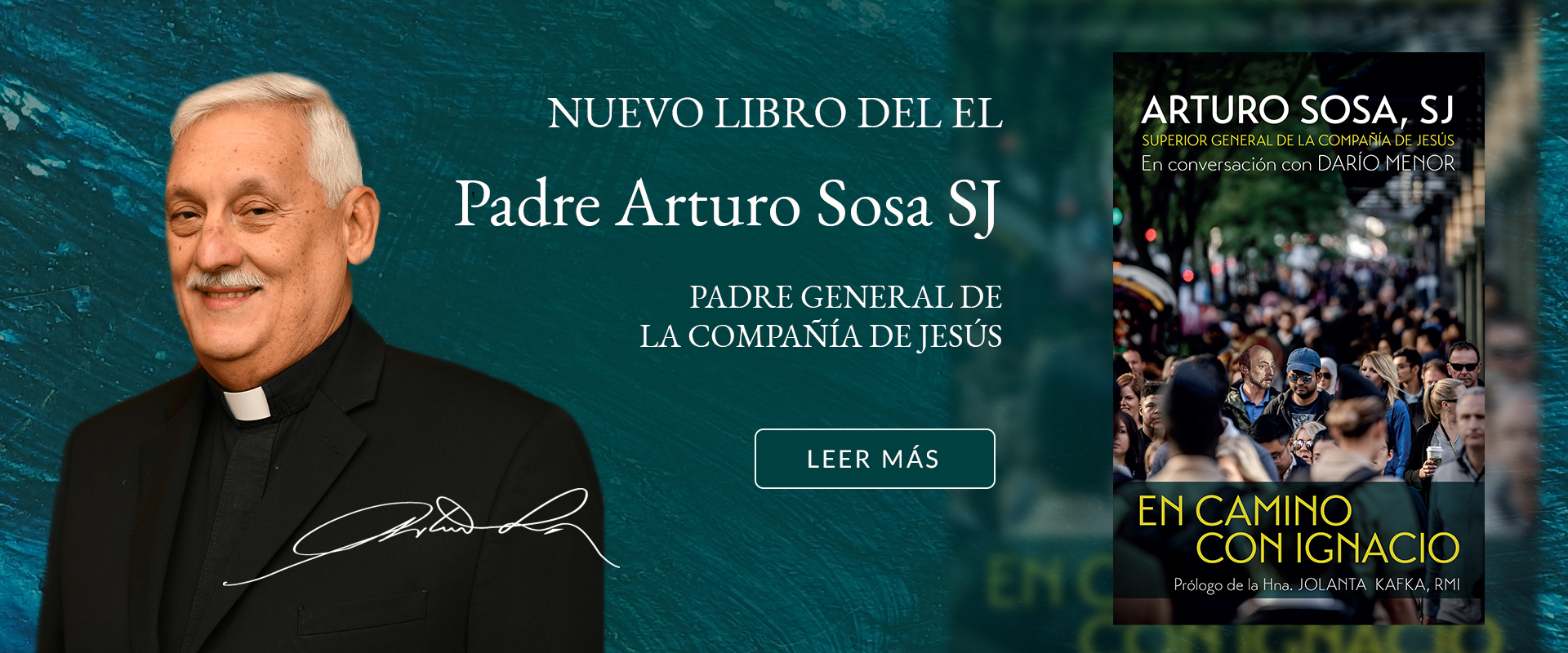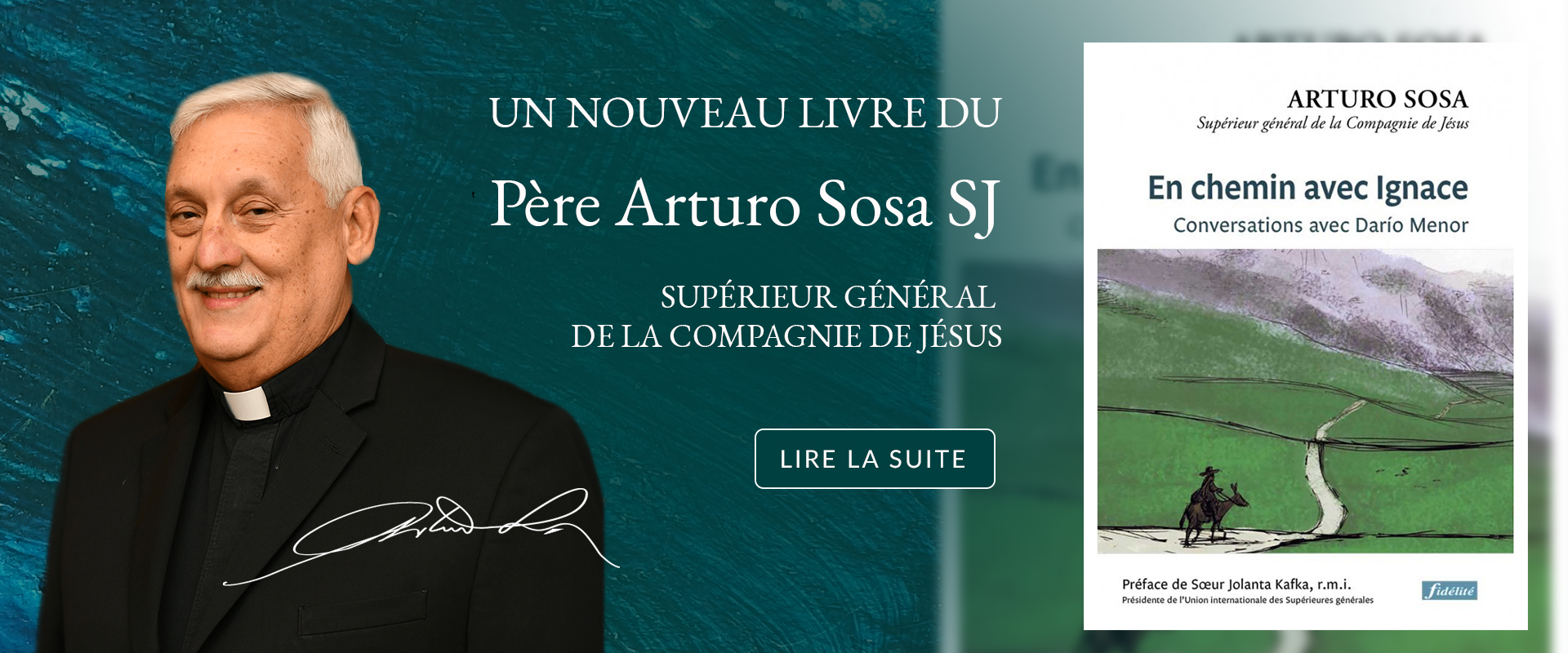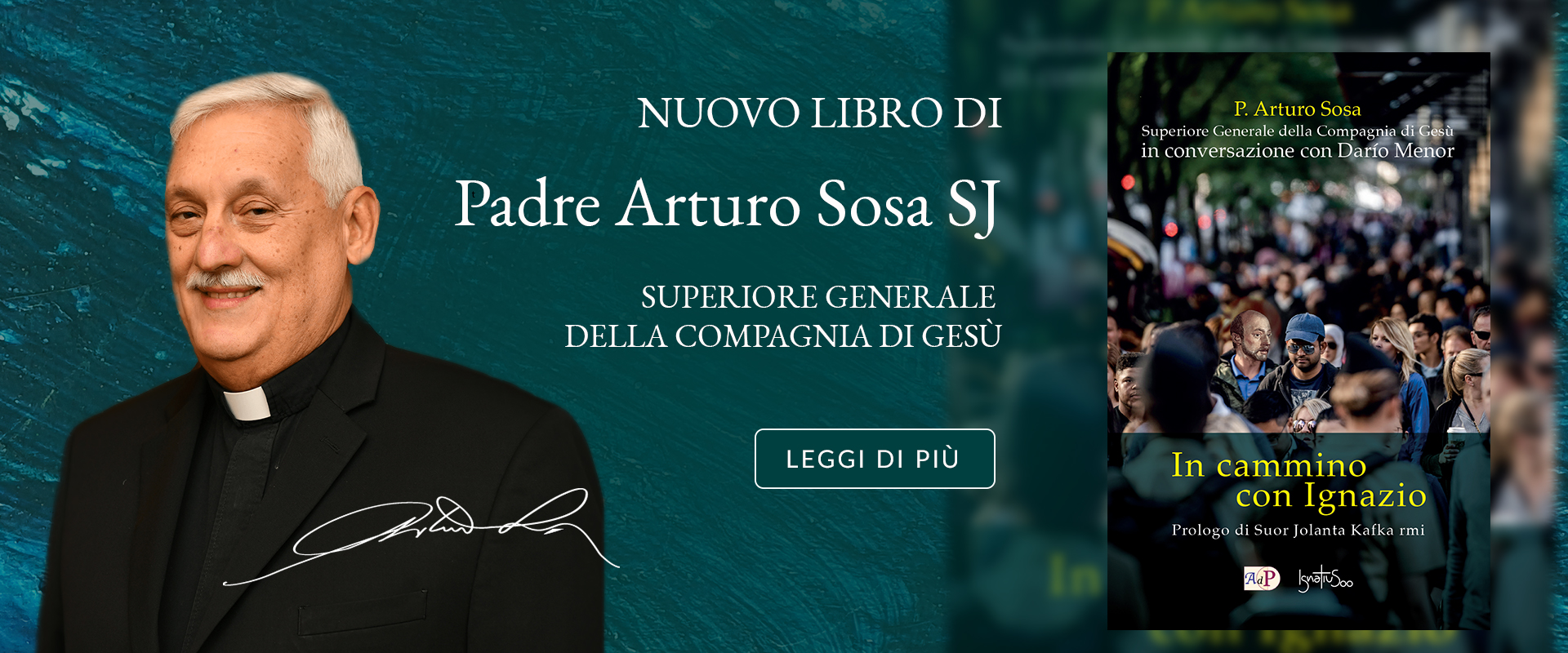During this Ignatian Year, we are publishing a series of homilies that Fr. General Kolvenbach held on the feast days of St. Ignatius. In this homily, Fr. Kolvenbach focuses the first meditation of the Spiritual Exercises.
Church of the Gesù, July 31st 1990
For all of us gathered again here it is a joy to celebrate Saint Ignatius’ feast together beside the Madonna della Strada (Madonna of the Way) and the Saint’s tomb.
All those who know Saint Ignatius through the Spiritual Exercises which, still today, illuminate so many Christians, helping them to understand their own lives as a vocation, will undoubtedly remember the sentence which opens the first meditation: “Man is created to praise … “. This is just a beginning. Ignatius often returns to it: to pray for the scope for which I am created; to praise God our Lord; to do what leads to the greater glory and praise of God. At the end of the Spiritual Exercises he invites us not to keep to abstractions but also to praise everything beautiful and good which God has accomplished in his Church; to praise the sacrament of reconciliation and the most holy Sacrament of the Eucharist, to praise pilgrimages and praise the church buildings. Ignatius does not ask us to automatically practice all the devotions and practices the Spirit brings about in his Church but he encourages us to have an open spirit, capable of praising the long prayers in church and lighted candles even if the Lord calls us to a different vocation. Even though the Lord called Ignatius to abandon a life consecrated to psalmody and exterior penance in order to give himself entirely to the exigent work of evangelization, he still praised his Lord for the contemplative life of nuns and monks. He considered diversity the expression of the wealth of the Spirit in the Church, which no single kind of life can fully express; this was no reason to compare and judge. The only thing to do is to emerge from oneself, from one’s own categories and interests, in order to praise the Lord who is rich in the diversity of his gifts.
Ignatius too considered king David the great figure of “him who praises”. Seized by the vision of all that God, Creator and Saviour, was doing for his people, he stripped himself of his regal vestments to dance his praise, beside himself, in front of the Lord’s Ark because his love is eternal. He was indifferent to the fact that the crowd might scoff at him; it didn’t matter to him that his wife thought that he was losing all prestige in front of the people. He felt that reciting a beautiful text, a few words of circumstance was not enough. His praise exploded into uncalculated, purely gratuitous dance: in praise of God because he is God and his love is eternal.
Undoubtedly, like Ignatius’ life, most of our lives will be an itinerary, a process which must laboriously choose the path towards the final encounter with our Creator and Saviour. Ignatius taught us discernment for a reason: the discovery of the Light of him who is the Way in our night along the narrow paths of the banality and suffering which seem merely the way towards an absurd death and yet in which, in its joyous light, we discern the way of God with us. Undoubtedly our life is a journey, however it must experience some moments when we do not move to attain our scope or obtain our own interest but in which we run and dance on the road marked out by the Lord simply out of joy that we are his sons, his brothers and his guests, without seeking our own interest, completely gratuitously. Man was also created to praise and this praise does not consist first of all in thanking for the gifts with which he has enriched us but in singing with our whole being – body and spirit – all our wonder, simply because God is marvellous. Ignatius knew well – and he says so in the Spiritual Exercises – that we are in the habit of looking at everything with utilitarian self-interest. What use can things and people and even friends be, not to say: “In what can God be useful to me?”. It is only if we are free from this instinct of possession that we can praise the Lord because he is great, because he is wonderful, because he is eternal love, as it were outside of ourselves like David in front of the ark, in total freedom, gratuitously, like men who have nothing else to do.
In front of the Madonna della Strada, at the beginning of the Ignatian year, let us ask the Lord through Saint Ignatius’ intercession and in his words “May all my intentions, actions and activity be purely ordered in the service and praise of his divine majesty”. May this be the grace of this Eucharist.
Read the other homilies here.


